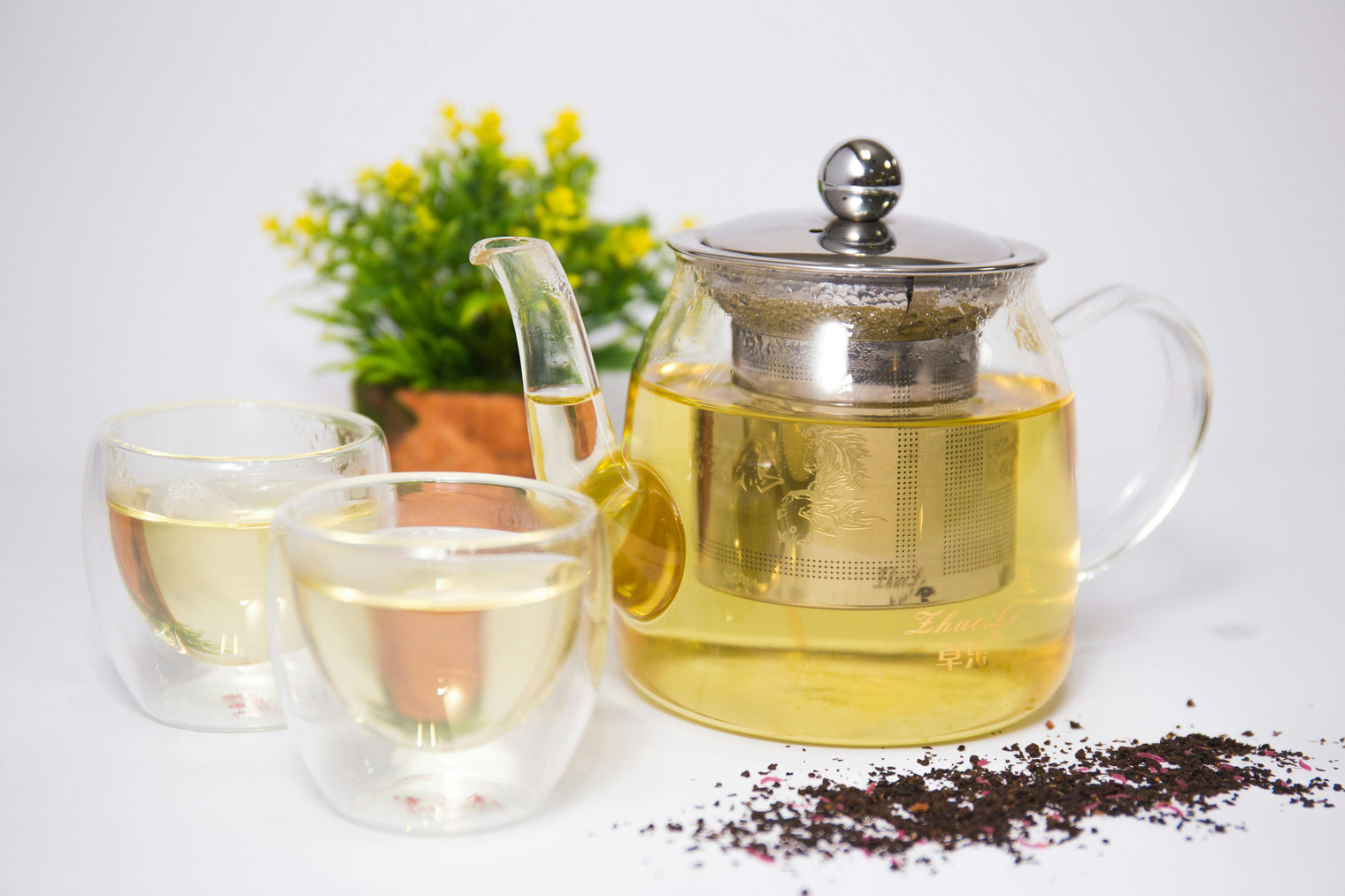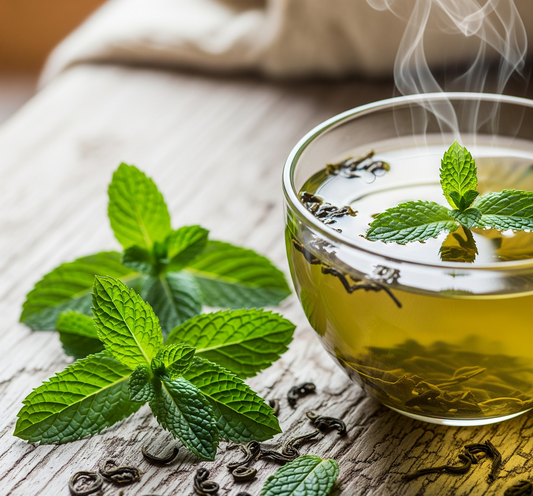Tea can cause mild diuresis due to its caffeine content, but it doesn't make you pee faster than water. Black tea has the highest caffeine (40-60 mg per 8 oz), followed by green (30-50 mg), oolong (30-50 mg), and white tea (25-40 mg). Peeing after tea is normal, influenced by factors like age, gender, and health conditions. If concerned about urination frequency, consider decaffeinated options and consult a healthcare provider for abnormal issues.
Go to comment (1)As tea lovers, we’ve all heard that tea makes you pee! Like a lot. But is there any truth to this claim? Does sipping your favorite beverage really make you go to the restroom more frequently?
The short and direct answer to this question is a resounding Yes! tea make you pee. As you take in more liquid, you body's naturally response is to produce more urine. After all, tea is almost entirely water. In this article, we’ll explore why tea makes you pee and provide a detailed and definitive answer to the age-old question, “Does tea make you pee?”
Is it Normal to Pee After a Cup of Tea?
Yes, peeing after drinking a cup of tea is completely normal. Your body producing urine is a natural response to the caffeine in tea. As you drink tea, the caffeine gets absorbed into your bloodstream and gradually travels into your kidneys. It is the kidneys’ job to filter the caffeine and produce urine.
It’s worth keeping in mind that the amount of urine produced after drinking tea varies depending on such factors as the quantity of tea consumed, the strength of the tea, as well as how sensitive you are to caffeine. People more sensitive to caffeine tend to pee more frequently after drinking tea.
Does Tea Make You Pee Faster Than Water?
Short answer, No! Tea doesn’t make you pee faster than water. Water is the best fluid to keep hydrated because it is quickly absorbed by the body and doesn’t have any diuretic effects.
As mentioned above, while tea contains caffeine, the diuretic effect is mild to negligible compared to contemporary beverages like coffee. So you'll pee as much drinking tea as you would drinking water. As a bonus, tea also contains water and L-theanine which can counter the diuretic effects of caffeine.
The Science Behind Tea and Urination
The best answer to the question “Does tea make you pee?” can be found by first understanding what tea is in the first place. This wonder beverage is made from the leaves of the Camellia Sinensis plant. This plant contains a natural substance called caffeine which is a diuretic. Diuretic substances increase urine production in the body, increasing the urge to pee.
However, it's important to note that the diuretic effect of tea is mild compared to other caffeinated beverages like coffee. This is because tea contains less caffeine than coffee. It also contains some compounds that can counteract the diuretic effect of caffeine like L-theanine.
It is also worth mentioning that there are four main types of teas that have varied quantities of caffeine:
Black tea
First on our list, black teas have the highest caffeine content among teas. An 8-ounce cup of black tea has approximately 40-60 mg of caffeine. Some black teas with the highest caffeine content include Indian varieties like Assam and Nilgiri. On the contrary, Chinese black teas like China Keemun and Lapsang Souchong have slightly less caffeine than Indian black teas. It should also be noted that flavored black teas contain slightly less caffeine due to the additional ingredients diluting the caffeine content.
Pick from our range of premium organic black teas.
Green tea
Green tea tends to have comparatively less caffeine compared to black tea. An 8-ounce cup of green tea typically has around 30-50 mg of caffeine. However, shade-grown green teas may contain higher traces of caffeine that are similar or even higher than black tea. Furthermore, Matcha, a type of powdered green tea, has even higher amounts of caffeine due to its concentrated form.
Pick from our range of premium organic green teas.
White tea
White teas typically have the lowest caffeine content among the teas. An 8-ounce cup has approximately 25-40 mg of caffeine. However, certain silver tip white teas, such as the Bashan Silver Tip and Jasmine Silver Needle, have higher caffeine levels because it is crafted from only the first bud and the top two tips of the plant harvested early in the first spring.
Pick from our range of premium organic white teas.
Oolong tea
Oolong tea generally has less caffeine than black tea but more than green or white tea. An 8-ounce cup of oolong tea typically has around 30-50 mg of caffeine. Compared to the other teas on our list, oolong teas can be steeped multiple times, with each successive steep containing less caffeine. The caffeine content of oolong teas decreases dramatically from the first to the third brew, yielding about 30-50 mg in the first cup, 15-25 mg in the second, and 5-10 mg in the third.
Pick from our range of the best oolong teas.
Other Factors That Can Affect Urination
Now that it has been established that tea very marginally affects urine production, let’s take a look at some other factors that can also play a role.
- Your Age: The muscles that make our bladder weaken with time. This can lead to more frequent urination.
- Your Gender: According to a report by the National Library of Medicine, women are more likely to experience daily urinary frequency. This can be attributed to the anatomy of their urinary tract.
- Any Medical conditions: Certain medical conditions, such as diabetes, kidney disease, and urinary tract infections, can affect urination frequency.
- Medications: Some medications, such as diuretics and blood pressure medications, can increase urine production.
So, does tea make you pee? The answer is Yes, but the diuretic effect is mild compared to other caffeinated beverages like coffee. The culprit responsible for making you want to pee after drinking tea is caffeine. You shouldn’t be worried about it since peeing after drinking tea is a natural response to the caffeine in the beverage.
While it’s true that tea can affect urination, it's still a healthy beverage option that contains water and other beneficial compounds that promote wellness. If you're concerned about the diuretic effect of tea, try drinking decaffeinated tea or limiting your intake of caffeinated beverages.
Remember that if you’re experiencing abnormally frequent urination or any other urinary issues, it is important to consult with your healthcare provider. As professionals, they can promptly identify the cause, and provide appropriate treatment.





Does Tea Make You Pee? The Interesting Truth
Comment (1)
Very educational, thank you